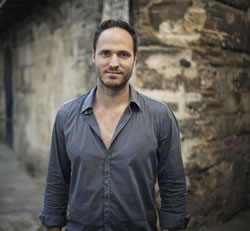|
To him, the story already looks like the Taj Mahal. Or more likely, its façade. He hasn't yet figured out what goes behind the façade of the Taj Mahal because he's never studied architecture. He knows what the building looks like on the exterior, which is also like what most people see when they read his stories–the full garment with the seams showing only if you flip it inside out. Some people ask him how he put together this or that scene or how he thought of the Taj Mahal or the funny or curious name of a character or the strange climax of the story, but what they mostly care about is the Taj Mahal itself or the character or the strange climax and whether or not this might make for another story that they might tell to other people. Perhaps, as his name is on the story as its author, he could say a few words about the piece. This he will do.
But he is building something else–the moment he sets out to build what he thinks to be the Taj Mahal. It may even be better he think that he is building the Taj Mahal so that he can build this other thing. That's the strange thing about it. A writer can't be like an architect because the story is always changing. The tools are different, varied, and, at times, even supernatural. An architect does not start off building something and only halfway through its construction realize he is building the Taj Mahal. It has to start as the Taj Mahal. Not for the writer, who only becomes the story's architect at the moment of its completion–after the building is already standing.
Sometimes I feel as if the less I know about what I am writing, the better; then I can be left alone with the voices of my story, which I will hear as one overhears the conversation from the balcony above, wondering in what colors (or lack of color) the people are dressed, the conversations that will precede or have followed it, and what pieces of the scene are absent from its transcript. Sometimes I love to make fifty-nine attempts at re-writing the ending of a story for the sheer thrill of trying to force an ending upon the characters that does not belong to them. I am secretly waiting for the moment when I will forget that I am writing a story, or for the characters to begin their protest and stage a walk-off. If I follow them off the page and to the backstage, some will be removing their makeup and their costumes; others will be smoking cigarettes and joking with one another as they only do when no one else is around, or when they are no longer characters, and by then they will of course be calling one another by their real names, some of which are also fictions. If I am lucky, one of the cute characters will flirt with me. And–if I am luckier still–not one of them will tell me what the story is "about." I will read its title on a leaflet someone has left in a seat. I will find out about the climax of the event only when it has already happened, which will have nothing to do with me, other than that it sprang from my imagination.
Now how to keep the story away from this man who calls himself "writer"… ?

The cover of my story collection, adapted from an illustration by the Mexican artist Manuel Zardaín.
|



